The Dutch Shepherd Dog Black is a breed of dog that is highly valued for its intelligence, loyalty, and versatility. These dogs have a distinctive black coat that is sleek and shiny, making them stand out from other breeds. They are known for their high energy levels and are often used as working dogs in a variety of fields, including law enforcement, search and rescue, and service animals.
The Dutch Shepherd Dog Black is a medium-sized breed that typically weighs between 50-70 pounds and stands between 22-24 inches tall. They are known for their athletic build and are often used in agility competitions. These dogs are highly trainable and respond well to positive reinforcement training methods. They are also very loyal to their owners and make excellent family pets. However, due to their high energy levels, they require plenty of exercise and mental stimulation to prevent boredom and destructive behavior.
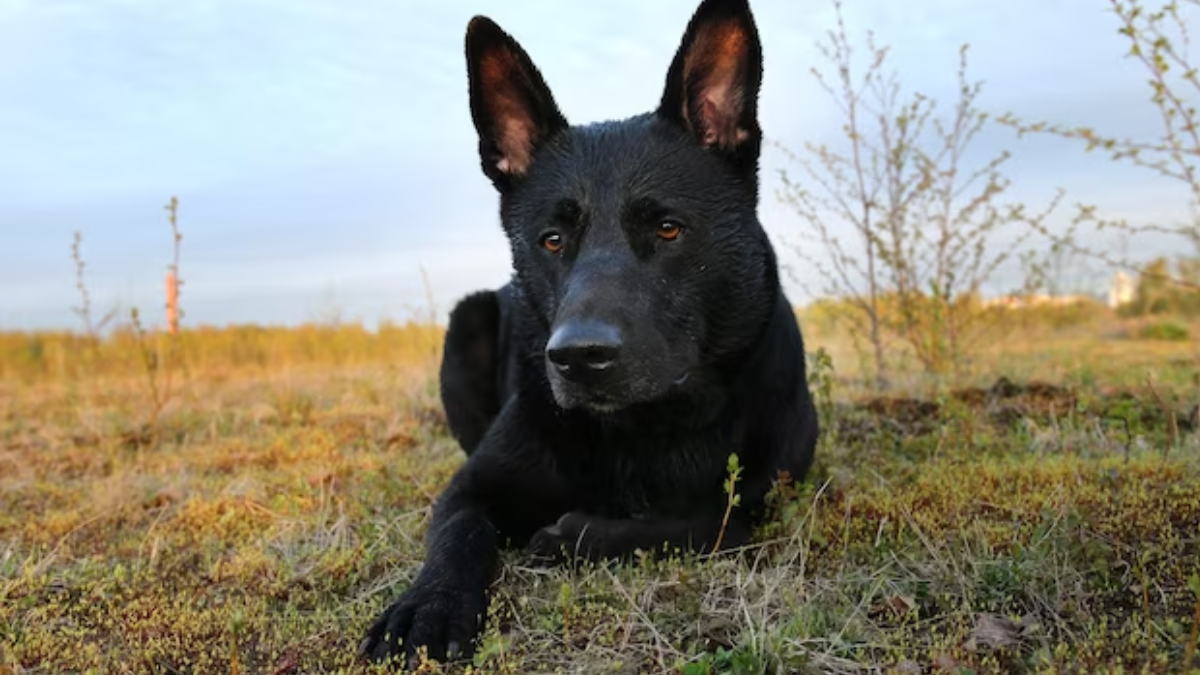
Breed Overview
Breed History
The Dutch Shepherd Dog Black is a rare breed that originated in the Netherlands. They were originally bred as working dogs to herd and guard livestock. The breed has been around for centuries and is known for its intelligence, loyalty, and versatility. They were also used as police dogs and search and rescue dogs during World War II.
Breed Standard
The Dutch Shepherd Dog Black is a medium-sized breed with a muscular build. They are known for their brindle coat, which can range from dark brown to black. The breed standard requires that their coat be short and dense, with a harsh texture. They are also known for their erect ears and almond-shaped eyes.
Appearance
The Dutch Shepherd Dog Black is a striking breed with a powerful and athletic appearance. They are known for their sleek, muscular build and their brindle coat. Their coat is short and dense, with a harsh texture that protects them from the elements. They have a wedge-shaped head and a strong jaw.
Size and Weight
The Dutch Shepherd Dog Black is a medium-sized breed, with males typically weighing between 55 and 67 pounds, and females weighing between 44 and 55 pounds. They are typically between 21 and 25 inches tall at the shoulder. Despite their muscular build, they are agile and quick on their feet.
Overall, the Dutch Shepherd Dog Black is a rare and versatile breed that is known for their intelligence, loyalty, and athleticism. They make excellent working dogs and are also great family pets for those who are willing to provide them with plenty of exercise and mental stimulation.
Temperament and Behavior
Personality Traits
The Dutch Shepherd Dog Black is known for its intelligent, active, and loyal personality. They are highly alert and have an instinct to protect their family and territory. Their independent nature makes them an excellent choice for experienced dog owners who can provide them with consistent training and socialization.

Family and Social Life
Dutch Shepherd Dogs Black are great with children and other pets when socialized from an early age. However, they can be wary of strangers and may require proper introductions. As a guard dog, they are highly protective of their family and will not hesitate to defend them if necessary.
Overall, the Dutch Shepherd Dog Black is a confident and knowledgeable breed that requires an active lifestyle and consistent training. With proper socialization and training, they make an excellent addition to any family looking for a loyal and protective companion.
Training and Intelligence
Training Techniques
Dutch Shepherd Dogs are highly trainable due to their intelligence and eagerness to please their owners. The most effective training technique for these dogs is positive reinforcement. This method involves rewarding the dog for good behavior, rather than punishing them for bad behavior. It is important to start training at a young age to establish good habits and prevent behavioral problems.
Dutch Shepherds respond well to consistency and clear communication. They require a firm but gentle hand during training, as they are sensitive to their owner's tone of voice and body language. It is recommended to use a variety of training techniques, such as clicker training, obedience training, and agility training to keep them engaged and mentally stimulated.
Mental Stimulation
Dutch Shepherds have a high level of intelligence and require mental stimulation to prevent boredom and destructive behavior. Mental stimulation can be achieved through activities such as puzzle toys, scent work, and obedience training. These activities challenge the dog's mind and provide a sense of accomplishment when completed successfully.
It is important to provide mental stimulation regularly to prevent behavioral issues such as excessive barking, digging, and chewing. Dutch Shepherds thrive on mental stimulation and can become easily bored without it.
Obedience and Agility
Dutch Shepherds excel in obedience and agility training due to their high intelligence and athleticism. Obedience training teaches the dog basic commands such as sit, stay, and come, while agility training involves navigating an obstacle course.
Obedience and agility training provides physical and mental stimulation for the dog, as well as strengthening the bond between the owner and the dog. These activities require a high level of focus and discipline from the dog, which can translate to better behavior in other areas of their life.
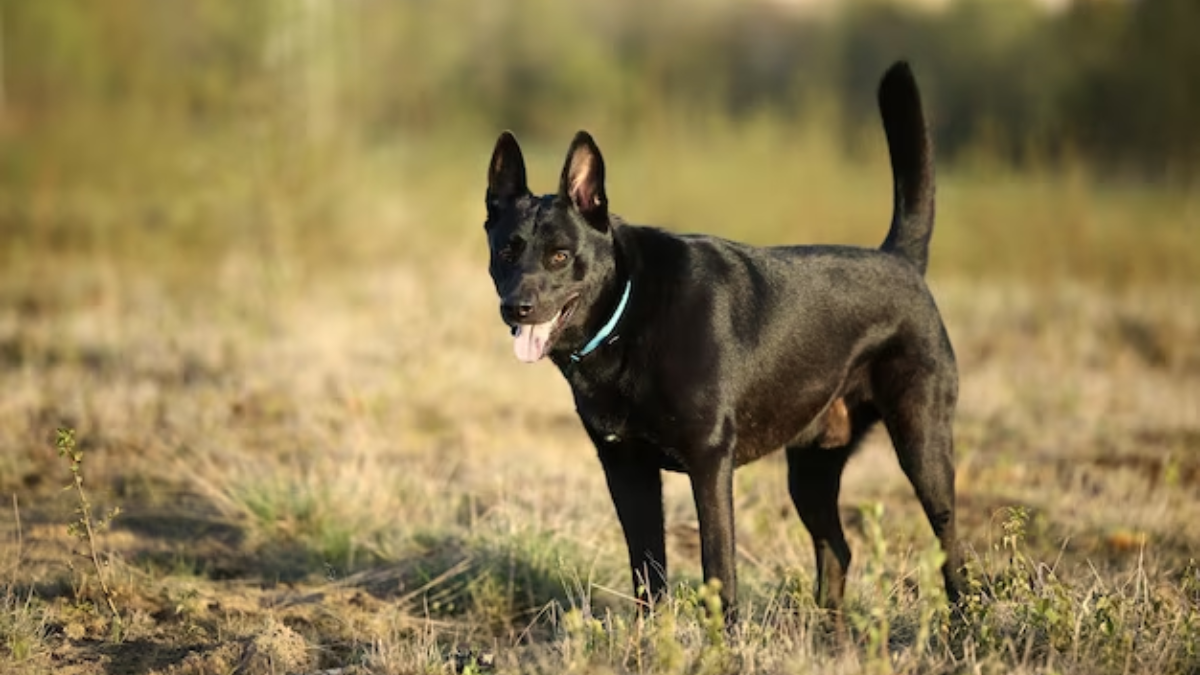
In conclusion, Dutch Shepherd Dogs are highly intelligent and trainable dogs that require mental stimulation and positive reinforcement during training. Consistency, clear communication, and a variety of training techniques are key to their success. Obedience and agility training provides physical and mental stimulation, as well as strengthening the bond between the owner and the dog.
Health and Care
Common Health Problems
Like all breeds, Dutch Shepherd Dogs can be prone to certain health problems. These include hip dysplasia, elbow dysplasia, and eye problems such as cataracts and progressive retinal atrophy. It is important to keep up with regular veterinary check-ups to catch any potential health issues early on.
Grooming and Shedding
Dutch Shepherd Dogs have a short, dense coat that requires minimal grooming. Weekly brushing with a slicker brush or rubber curry comb can help remove loose hair and keep the coat shiny. They do shed seasonally, so more frequent brushing may be necessary during those times.
Diet and Nutrition
A high-quality, balanced diet is important for the overall health and well-being of Dutch Shepherd Dogs. It is recommended to feed them a diet that is appropriate for their age, size, and activity level. Owners should also monitor their dog's weight and adjust their diet accordingly to prevent obesity.
Exercise Needs
Dutch Shepherd Dogs are an active breed that requires daily exercise to stay healthy and happy. They enjoy activities such as running, hiking, and playing fetch. It is important to provide them with enough exercise to prevent boredom and destructive behavior.
In conclusion, Dutch Shepherd Dogs are a relatively healthy breed that require minimal grooming and a balanced diet. They thrive on daily exercise and can be prone to certain health issues, so regular veterinary check-ups are important. By providing them with proper care and attention, owners can ensure their Dutch Shepherd Dog lives a happy and healthy life.
Breeding and Genetics
Breeding Practices
The Dutch Shepherd Dog, Black is a highly intelligent and versatile breed that is prized for its working abilities. To maintain the breed's working qualities, responsible breeders carefully select breeding pairs based on temperament, health, and working ability. They also ensure that the breeding dogs have passed health tests for conditions such as hip dysplasia and eye problems.
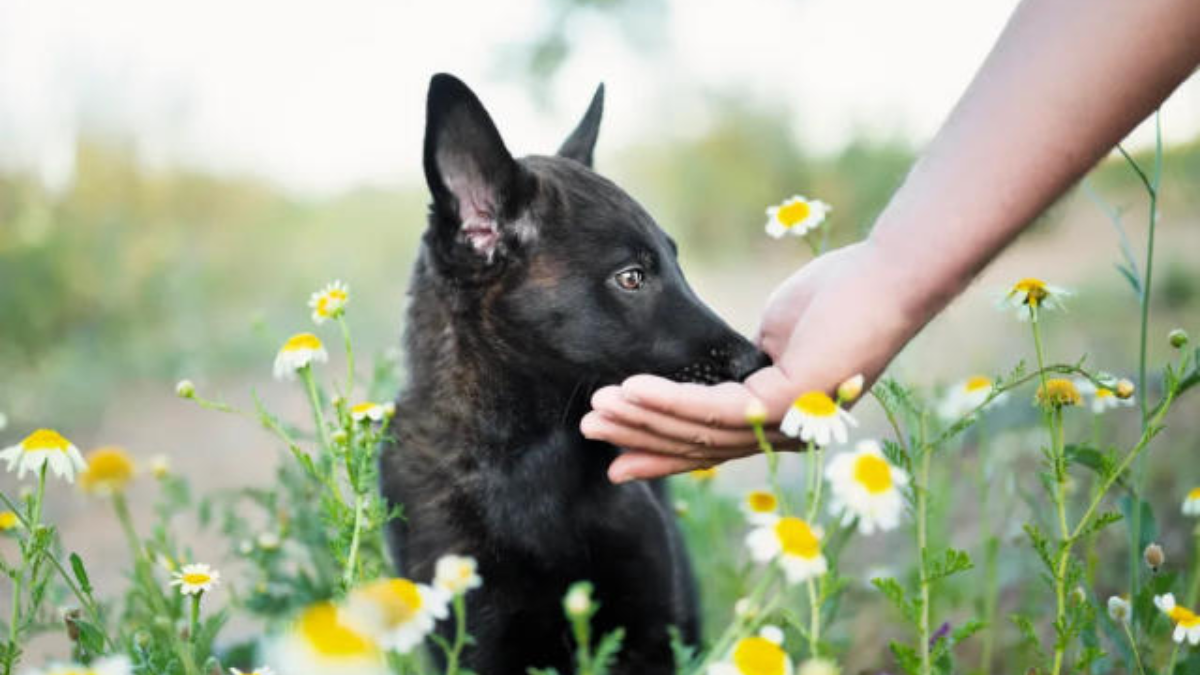
Breeding Dutch Shepherd Dogs, Black requires a deep understanding of the breed's temperament and working abilities. The breed's working abilities are highly valued, and breeders strive to produce dogs that are physically and mentally sound for various types of work, including police and military work, search and rescue, and herding.
Genetic Diversity
Maintaining genetic diversity is essential to the health and well-being of any breed. Inbreeding can lead to the loss of genetic diversity, which can increase the risk of health problems and reduce the breed's working abilities. To maintain genetic diversity, responsible breeders carefully select breeding pairs from different lines and avoid breeding dogs that are closely related.
The Dutch Shepherd Dog, Black has a relatively small gene pool, which makes maintaining genetic diversity even more critical. Breeders work to maintain genetic diversity by carefully selecting breeding pairs and avoiding breeding dogs that carry genetic defects.
Overall, responsible breeding practices and maintaining genetic diversity are essential to producing healthy and working Dutch Shepherd Dogs, Black. By carefully selecting breeding pairs and avoiding inbreeding, breeders can help ensure that the breed continues to thrive for generations to come.
Working and Utility
Herding and Livestock
The Dutch Shepherd Dog Black is an excellent herding dog that has been bred for generations to work with livestock. They are intelligent, agile, and have a strong work ethic, making them ideal for this type of work. With their natural herding instincts, they can control and move livestock with ease. They are also able to work independently, making them a great asset to farmers and ranchers.
Police and Military Work
The Dutch Shepherd Dog Black is a versatile working dog that has been used by police and military forces around the world. They are highly intelligent, trainable, and have a strong work ethic. They excel in tasks such as tracking, search and rescue, and detecting explosives and narcotics. Their high energy and drive make them ideal for this type of work.
Search and Rescue
The Dutch Shepherd Dog Black is an excellent search and rescue dog that has been used in a variety of situations. They are highly trainable and have a strong work ethic, making them ideal for this type of work. They can work in a variety of environments, including urban and wilderness areas. Their instincts and abilities make them a valuable asset to search and rescue teams.
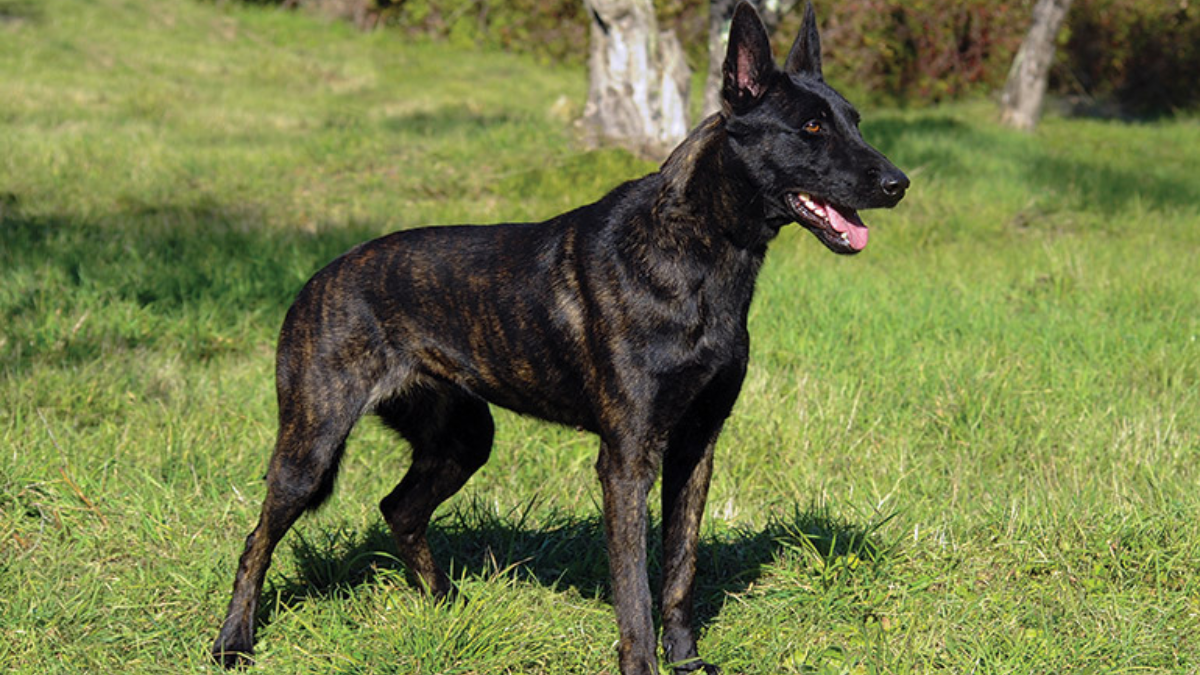
Service and Therapy Dogs
The Dutch Shepherd Dog Black is an ideal service and therapy dog due to their intelligence, trainability, and gentle nature. They can assist individuals with a variety of tasks, including mobility assistance, alerting to medical emergencies, and providing emotional support. They are also used as therapy dogs in hospitals and nursing homes due to their calm and gentle demeanor.
In conclusion, the Dutch Shepherd Dog Black is a highly versatile working dog that excels in a variety of tasks. Their instincts, intelligence, and strong work ethic make them ideal for tasks such as herding, police and military work, search and rescue, and service and therapy work. They are a valuable asset to any team and are highly respected for their abilities.
Adoption and Ownership
Finding a Breeder
When looking for a Dutch Shepherd Dog Black, it is important to find a reputable breeder. A good breeder will provide you with a healthy puppy that has been socialized and well-cared for. They will also be able to answer any questions you may have about the breed and provide you with information on the puppy's parents.
To find a breeder, you can start by contacting the Dutch Shepherd Club of America or searching online for breeders in your area. It is important to do your research and ask for references before making a purchase.
Rescue and Adoption
If you are interested in adopting a Dutch Shepherd Dog Black, many rescue organizations specialize in this breed. Adopting a dog from a rescue organization can be a great way to give a dog a second chance at a happy life.
To find a rescue organization, you can search online or contact the Dutch Shepherd Club of America for recommendations. It is important to note that rescue dogs may have behavior issues that need to be addressed, so it is important to be prepared for this possibility.
Cost of Ownership
The cost of owning a Dutch Shepherd Dog Black can vary depending on several factors, including where you live, the breeder or rescue organization you work with, and the dog's age and health. On average, you can expect to pay between $1,000 and $2,500 for a puppy from a reputable breeder.
In addition to the initial cost of the dog, you will need to budget for food, veterinary care, training, and other expenses. Dutch Shepherd Dogs Black have a lifespan of 12-15 years, so it is important to be prepared for the long-term commitment of owning a dog.
Overall, adopting or purchasing a Dutch Shepherd dog can be a rewarding experience for the right owner. By doing your research and being prepared for the responsibilities of ownership, you can ensure that you and your dog have a happy and healthy life together.
Breed Comparisons
Dutch Shepherd vs. German Shepherd
When it comes to comparing the Dutch Shepherd to the German Shepherd several other organizations host, there are some similarities and differences to consider. Both breeds are known for their intelligence, loyalty, and protective nature. However, the Dutch Shepherd is generally more agile and athletic, while the German Shepherd is larger and more muscular.
In terms of temperament, the Dutch Shepherd is typically more independent and can be more challenging to train than the German Shepherd. On the other hand, the German Shepherd is known for its obedience and trainability, making it a popular choice for police and military work.
When it comes to health, both breeds are prone to hip dysplasia and other joint issues. However, the Dutch Shepherd is generally considered to be a healthier breed overall.
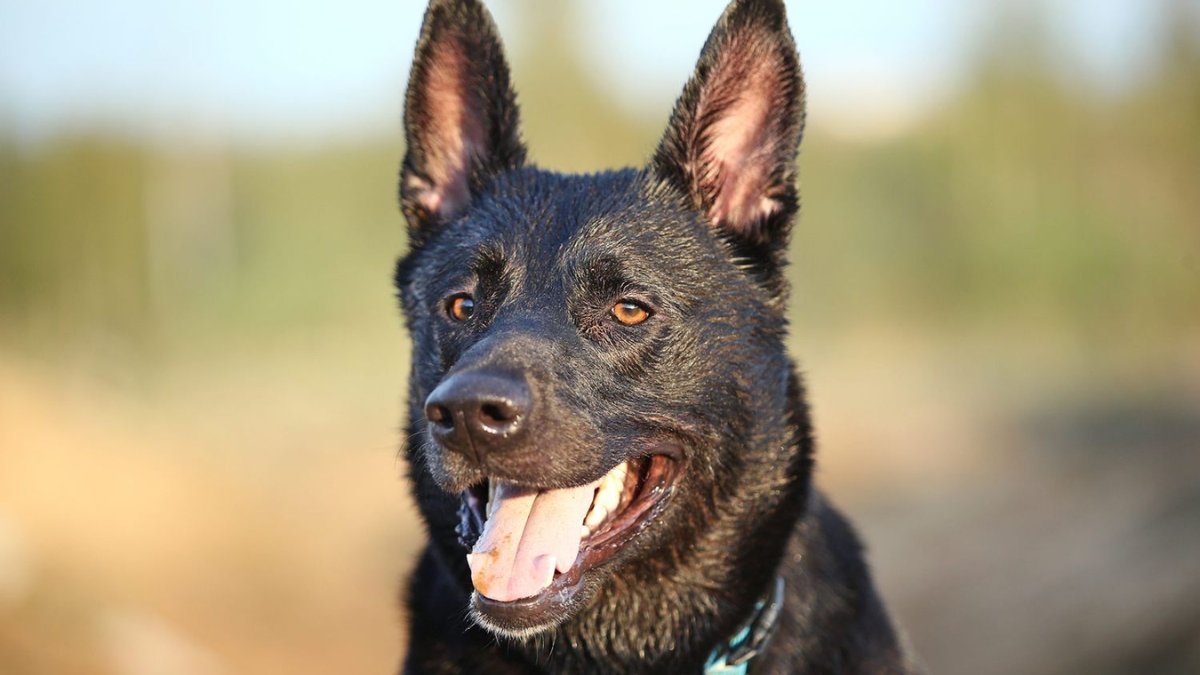
Dutch Shepherd vs. Belgian Malinois
The Dutch Shepherd and the Belgian Malinois are two breeds that are often compared due to their similar appearance and working abilities. Both breeds are known for their high energy levels, intelligence, and trainability.
However, the Dutch Shepherd is generally more versatile and adaptable than the Belgian Malinois. While the Belgian Malinois is primarily used for police and military work, the Dutch Shepherd can excel in a variety of roles, including search and rescue, agility, and obedience competitions.
In terms of temperament, the Dutch Shepherd is typically more independent and can be more challenging to train than the Belgian Malinois. However, the Dutch Shepherd is also known for its loyalty and protective nature, making it an excellent choice for a family pet.
When it comes to health, both breeds are prone to hip dysplasia and other joint issues. However, the Dutch Shepherd is generally considered to be a healthier breed overall.
Overall, when deciding between the Dutch Shepherd, German Shepherd, and Belgian Malinois, it's essential to consider your individual needs and lifestyle. Each breed has its unique strengths and weaknesses, and choosing the right one for you will depend on your specific circumstances.
Community and Resources
Breed Clubs and Associations
The Dutch Shepherd Dog Black breed has several breed clubs and associations that are dedicated to promoting the breed and providing resources to breeders and owners. One of the most well-known organizations is the Dutch Shepherd Dog Club of America (DSDCA), which is recognized by the American Kennel Club (AKC). The DSDCA provides information on breed standards, health issues, and training tips. They also organize events such as conformation shows, obedience trials, and herding tests.
In addition to the DSDCA, there are several other breed clubs and associations that cater to Dutch Shepherd Dog Black owners and enthusiasts. These include the Dutch Shepherd Dog Club of Canada, the Dutch Shepherd Dog Club of the United Kingdom, and the Dutch Shepherd Dog Club of Australia. These organizations offer similar resources to their members, such as breed information, health testing, and event opportunities.

Events and Competitions
The Dutch Shepherd Dog Black is a versatile breed that excels in a variety of sports and activities. Many breed clubs and associations organize events and competitions that allow owners to showcase their dog's skills. Some popular sports for Dutch Shepherd Dogs include obedience, agility, herding, and protection work.
The AKC offers several events throughout the year that Dutch Shepherd Dog Black owners can participate in. These include the AKC National Championship, the AKC Obedience Classic, and the AKC Agility Invitational. There are also several regional and local events that owners can attend.
In addition to AKC events, several other organizations host competitions for Dutch Shepherd Dogs. The United States Dog Agility Association (USDAA) offers agility trials, while the American Herding Breed Association (AHBA) hosts herding tests. The North American Dutch Shepherd Rescue (NADSR) also organizes events specifically for Dutch Shepherd Dogs.
Overall, the Dutch Shepherd Dog Black community is active and supportive, with many resources available to owners and enthusiasts. Whether you're interested in competing in sports or simply want to learn more about the breed, there are plenty of opportunities to get involved.
Living with a Dutch Shepherd
Home Environment
Dutch Shepherds are energetic dogs that require a lot of physical activity. They are not recommended for apartment living or small homes with limited outdoor space. They thrive in a home with a large fenced yard where they can run and play freely. A Dutch Shepherd also needs a comfortable and safe place to rest and sleep. A cozy dog bed or crate is recommended.
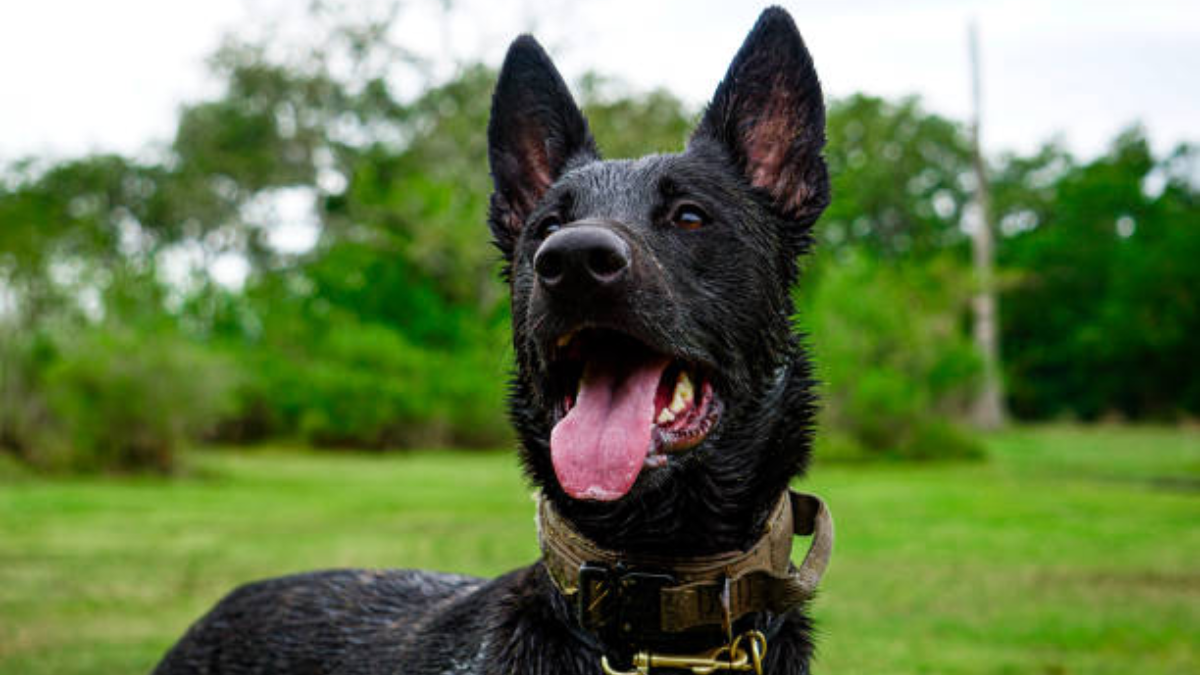
Family Dynamics
Dutch Shepherds are affectionate and loyal dogs that love spending time with their families. They are great with children and make excellent family pets. However, they may not be suitable for families with very young children due to their high energy levels. It is important to supervise interactions between children and dogs to avoid any accidents.
Training and socialization are essential for Dutch Shepherds. They are intelligent and trainable dogs that love to learn new things. Positive reinforcement training methods work best with them. Early socialization with other dogs and people is also important to prevent any aggressive behavior.
Dutch Shepherds are playful dogs that love to run, jump and play. They need plenty of exercise and mental stimulation to keep them happy and healthy. Daily walks, runs, and playtime in the backyard are essential to meet their energy needs.
In summary, living with a Dutch Shepherd requires a spacious home environment with a large fenced yard, comfortable sleeping arrangements, and plenty of exercise and mental stimulation. They are affectionate, trainable, and playful dogs that make great family pets with proper training and socialization.
Cultural Impact
Historical Significance
The Dutch Shepherd Dog Black has a rich history in the Netherlands, where it was originally bred for herding and guarding flocks of sheep. These dogs were highly valued for their intelligence, loyalty, and versatility, and were often used by farmers and shepherds to help manage their livestock.
Over time, the Dutch Shepherd Dog Black became popular with law enforcement and military organizations due to its exceptional tracking and protection abilities. During World War II, these dogs were used extensively by the Dutch Resistance to help smuggle people and goods across the border.
Popularity and Trends
Today, the Dutch Shepherd Dog Black remains a popular breed in the Netherlands and has gained a following in other parts of the world as well. Its intelligence, athleticism, and loyalty make it a popular choice for police and military work, as well as for search and rescue operations.
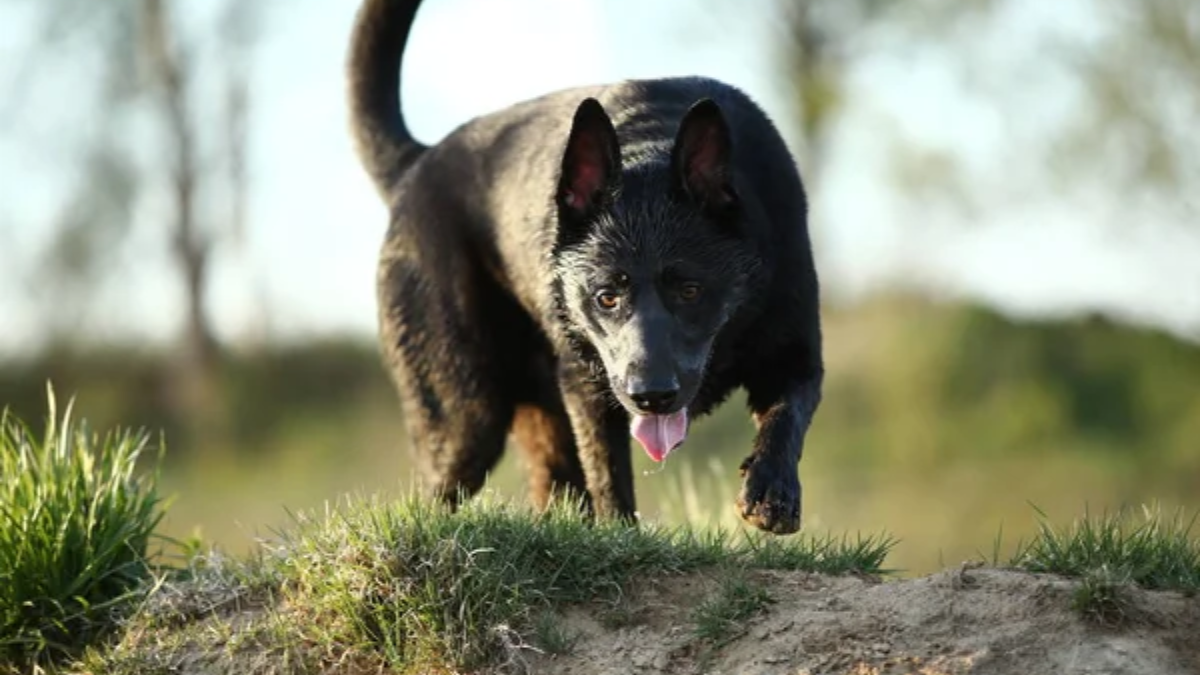
In recent years, there has been a growing interest in the Dutch Shepherd Dog Black as a family pet and companion animal. These dogs are known for their affectionate and playful nature, and their high energy levels make them a good match for active families who enjoy outdoor activities.
Overall, the Dutch Shepherd Dog Black has had a significant cultural impact in the Netherlands and beyond, and its popularity shows no signs of waning anytime soon.
Conclusion:
In conclusion, the Dutch Shepherd Dog Black: is an exceptional breed renowned for its intelligence, loyalty, and versatility. Their sleek and shiny black coat not only sets them apart aesthetically but also reflects their distinctiveness in personality and capabilities. From their origins as herding dogs to their roles in law enforcement, search and rescue, and service work, Dutch Shepherd Dog Blacks consistently demonstrate their value and adaptability.
Despite their high energy levels, they possess a remarkable willingness to learn and work alongside their human counterparts. To ensure the well-being and happiness of Dutch Shepherd Dog Blacks, owners must provide adequate exercise, mental stimulation, and socialization. Additionally, consistent training and positive reinforcement are essential for channeling their energy and intelligence in constructive ways.
By understanding and meeting the unique needs of Dutch Shepherd Dog Blacks, owners can cultivate strong bonds and mutually rewarding relationships. With proper care and attention, these remarkable dogs will continue to thrive and excel in various roles, leaving a lasting impression on all who encounter them.
Frequently Asked Questions
- What is the typical price range for a Dutch Shepherd puppy?
- The price of a Dutch Shepherd puppy can vary greatly depending on the breeder, location, and bloodline. On average, a Dutch Shepherd puppy can cost anywhere between $1,000 to $2,500.
- What are the common coat colors for the Dutch Shepherd breed?
- The Dutch Shepherd breed comes in three coat types: short, long, and wire. The most common coat colors are brindle, fawn, and black. However, there are also Dutch Shepherds with blue, silver, and liver coats.
- How does the Dutch Shepherd's temperament suit a family environment?
- The Dutch Shepherd is a loyal and protective breed that can make a great addition to a family. They are intelligent, trainable, and have a strong desire to please their owners. However, they do require early socialization and training to ensure they are well-behaved around children and other pets.
- What is the average weight and size of a Dutch Shepherd?
- The Dutch Shepherd is a medium to large-sized breed. Males typically weigh between 60 to 75 pounds and stand 22 to 24 inches tall at the shoulder. Females are slightly smaller, weighing between 45 to 60 pounds and standing 20 to 22 inches tall at the shoulder.
- Are black Dutch Shepherds considered a rare color variation?
- While black Dutch Shepherds are not as common as other coat colors, they are not considered a rare color variation. Black Dutch Shepherds can have a solid black coat or a black brindle pattern.
- What should potential owners know about the Dutch Shepherd's mix breeds?
- Dutch Shepherds are often mixed with other breeds to create unique hybrid dogs. Some popular Dutch Shepherd mix breeds include the Dutch Shepherd Lab mix, Dutch Shepherd German Shepherd mix, and Dutch Shepherd Rottweiler mix. It is important to research the temperament and characteristics of both breeds before deciding on a mix breed dog.




